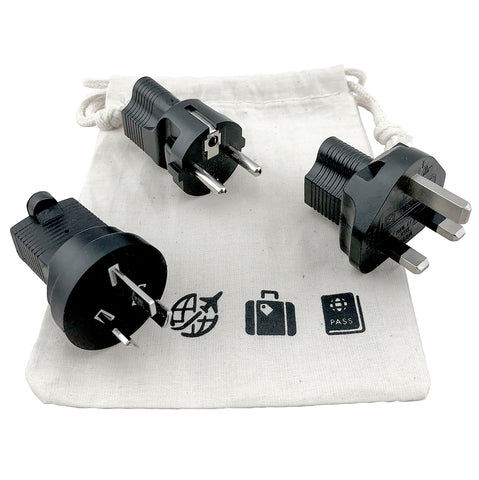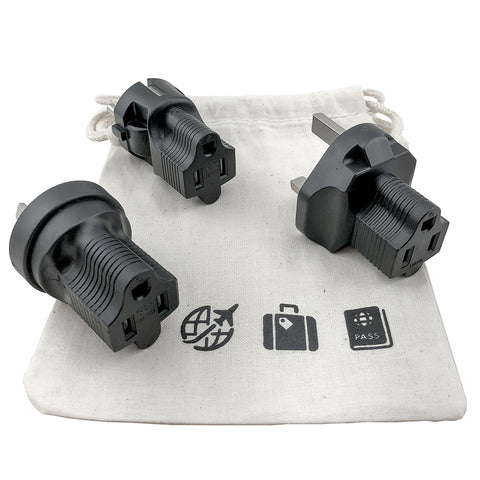Power Cord Regulations in the Food Service Industry
In the food service industry, you must meet the regulations required for your equipment to stay safe and to prevent the contamination of food. This article will discuss the power cord regulations in the food service industry, and how you can make sure your power cords meet these requirements.
What Are the Power Cord Regulations in the Food Service Industry?
Power cords and cables must meet strict regulations to ensure that they meet the food safety hygiene standards in the US. These regulations help prevent the contamination of food, and keep the electrical equipment safe at the same time.
Production equipment, as well as the necessary cables, components, and accessories, must remain reliable and consistent throughout diverse mechanical, chemical, humidity, and temperature conditions.
These hygiene standards include:
- Chemical resistance: Cables must resist aggressive cleaning agents, bio-oils, fats, fruit, and lactic acids.
- Thermal resistance: Cables must be able to withstand extreme temperatures.
- Mechanical resistance: Cables must be able to withstand repeated wash and wipe downs and other mechanical stress.
- Water resistance: Cables must be water resistant or waterproof.
- Certification: Cables must be certified by FDA, ECOLAB, or Hygenic Design.
- Non-Absorbency and Non-Transferring: Cables must not be absorbent or transmit odors, olors, or blemishes onto the food.
Who Decides on the Hygiene Regulations?
The main body that decides on food industry requirements is the FDA. While the FDA doesn’t directly approve cables for use in the food industry, third-party testing can ensure that the power cords and electrical equipment you use are FDA-compliant and certified with the Code of Federal Regulation (CFR).
Electrical Safety Tips
Keeping your power cords safe and secure in the food industry is important, so you must make sure you are doing everything possible to ensure electrical safety. Some things you can do to keep your electricals safe include:
- Checking that sockets and fixtures are protected by Arc Fault Circuit Interrupter (AFCI)
- Testing circuit interrupters frequently and replacing any that malfunction
- Checking appliances frequently
- Using molded cord sets for secure connection and disconnect
- Make sure you use the right power cord for the safety zone the electricals are plugged into
Ensuring that you prioritize electrical safety means that you will be operating safely, and that your food will stay contamination-free.
How to Ensure Your Power Cords Are Meeting the Safty Standards
The easiest way to make sure that your power cords are meeting the safety standards required is to make sure you are sticking to the zones of electrical products in the food service industry. The zone concept is a term used in the food industry to divide food operations into three zones based on their level of risk contamination that each is exposed to. These zones are the contact zone, the splash zone, and the non-contact zone.
| Contact Zone | Splash Zone | Non-Contact Zone | |
| Food Contact |
Direct food contact with machinery and equipment is intended as part of processing |
Incidental food contact is possible, but not intended |
No electrical equipment contact with food is expected |
|
Contamination Risk |
High |
Moderate |
Low |
| Washdown Procedure |
Frequent washdown with pressurized water, steam, and industrial cleaning agents |
Regular washdown with industrial cleaning agents |
No regular washdown procedure |
|
Equipment Requirements |
Highest FDA requirements. Must be sanitary, safe for food contact, easily cleaned and resistant to repeated washdown |
Subject to some FDA requirements. Must be sanitary, easily cleaned, and resistant to washdown procedure |
Should be suitable for industrial applications, EMC compliant, and may require washdown resistance |
|
Regulations |
21 CFR, NFPA 79 |
21 CFR, NFPA 79 |
NFPA 79, NFPA 70 |
The power cords used in the contact zone must meet stringent cleanliness regulations. They must be resistant to industrial cleaning agents and extreme temperatures. In the splash zone, the cables used should be highly resistant to water, steam, cleaning products and other liquids, and the materials should not absorb any liquids. In the non-contact zone, the cables should be robust and durable, designed for longevity and reliable performance.
At SIGNAL+POWER, we offer custom power cords that are suitable for use in the food industry and that adhere to the standards for the industry. You can find more information about these power cords at our custom power cords page.
Power Cords For the Food Service Industry from SIGNAL+POWER
SIGNAL+POWER provides custom power connectivity solutions designed for your specific food service application using special cables and connectors that meet the safety standards that are needed for the food service industry. Whether it's packaging lines, filling stations, conveyors, refrigeration units, fryers, grain terminals, washdown areas, or other essential operations, our power cables and cords deliver exceptional durability and reliable performance.
Need help designing the perfect solution for your food or beverage processing operations? Please call 888-788-4884 or 408-871-7928 or email sales@signalandpower.com for expert advice and guidance.






